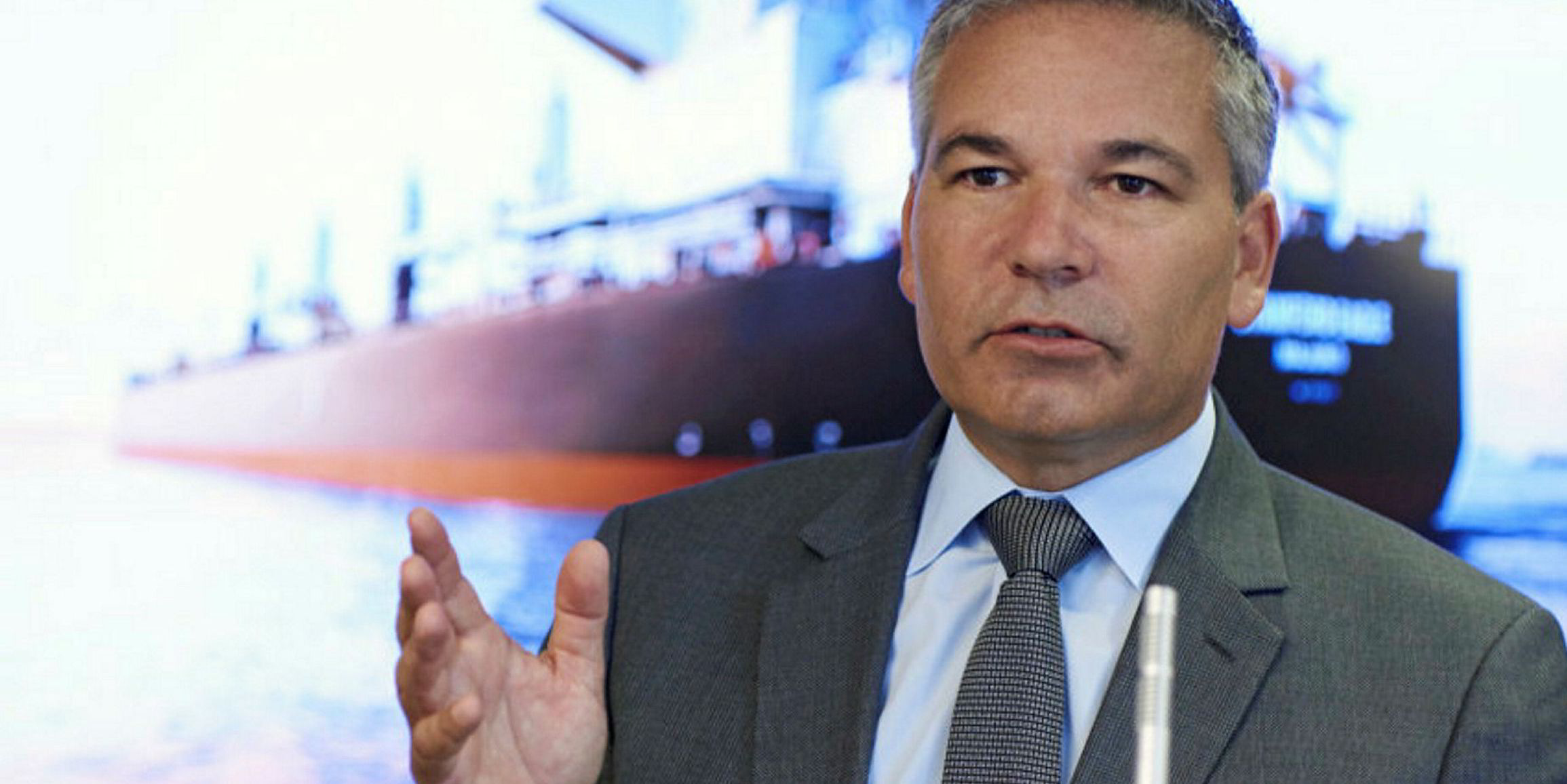Shipowners were put on notice a year ago. They needed to report their carbon emissions to the IMO anyway, so it is not as though the data was not available.
And they were told by analyst Michael Webber that making a public filing — simply including some numbers in an annual report, for example — would suffice, no need for a special project.
And yet only 40% of the 52 shipowners judged in Webber’s new “ESG Scorecard” decided to report carbon emissions, which are included in his governance rankings for the first time.
But here’s a twist: after dealing with public shipowners since 2007, Webber is not disappointed by the response rate. He is encouraged.
“I was pleasantly surprised — I would have guessed it would have been closer to 25% or 30% in the first year,” he told TradeWinds after his report was released this week.
Twenty-two owners did make carbon disclosures in one way or another, ranging from simple public filings to more elaborate ESG (environmental, social and governance) supplements. A further half-dozen are working on disclosures and just did not make his deadline.
“If we put this report out in the fall, it might have been 50% or higher,” Webber said.
“Look, am I happy overall with 40%? No. But it’s not something that they’re mandated to do, and it’s a first step.”
Supporting Poseidon
Webber, founder of an independent New York firm, Webber Research & Advisory, first flagged up intentions to seek carbon disclosures last July, when he was lead shipping analyst at Wells Fargo Securities.
He asked for disclosure of Annual Efficiency Ratio (AER) and Annual Energy Efficiency Operational Indicator figures, to be provided by vessel and fleet. Those are terms laid out in the Poseidon Principles, a green shipping initiative formed by the world’s leading maritime lenders.
Both are measured in grams of CO2 per tonne mile, and the AER was already required to be reported to the IMO for the first time in 2019.
The veteran analyst has prepared the groundbreaking scorecard since 2016, and decided to add carbon reporting in support of the Poseidon group. He assigned a hefty 20% weighting to the issue, making it as significant as any one factor except related-party conflicts, which count for 35% of a company’s score.
'It's not laziness, it's indifference'

“I wanted it to be significant,” he said. “It’s an issue that’s only going to become a bigger deal.”
Of those not reporting, including the companies clustered at the bottom of his rankings, Webber blames one factor: “I don’t think it’s a matter of laziness, I’d say it’s about indifference. Those who don’t care haven’t cared about other aspects of governance either. I think there’s a group who probably shouldn’t be public companies who don’t care.”
In the overall rankings, Connecticut’s Eagle Bulk Shipping was again top, trailed for the third consecutive year by New York tanker company International Seaways.
Regulars at the top — and bottom
Rounding out the top five were Ireland-based product tanker owner Ardmore Shipping, Triton International and New York bulker owner Genco Shipping & Trading.
Many of these names are regulars at the top. The companies finishing at the bottom of Webber’s rankings are used to being there as well.
Last place went to Greece’s Safe Bulkers. Rounding out the bottom five were LPG carrier operator StealthGas, tanker operator Tsakos Energy Navigation and two boxship owners, Danaos Corp and Global Ship Lease.
Eagle Bulk chief executive Gary Vogel told TradeWinds: “With emissions reporting now included in the scorecard criteria, we think Mike and his team continue to evolve the matrix to focus on areas that matter to investors and stakeholders.
Good corporate citizen
“We are very pleased to be ranked, once again, as the leading company.
“We have always placed a great deal of emphasis on being a good corporate citizen, and it is gratifying to be recognised for doing what we believe is the right thing in terms of alignment with shareholders and transparency.”
Companies in the top quadrant of Webber’s rankings again outperformed the full group in share price, while the laggard quadrant underperformed — a consistent trend since the scorecard’s debut.








